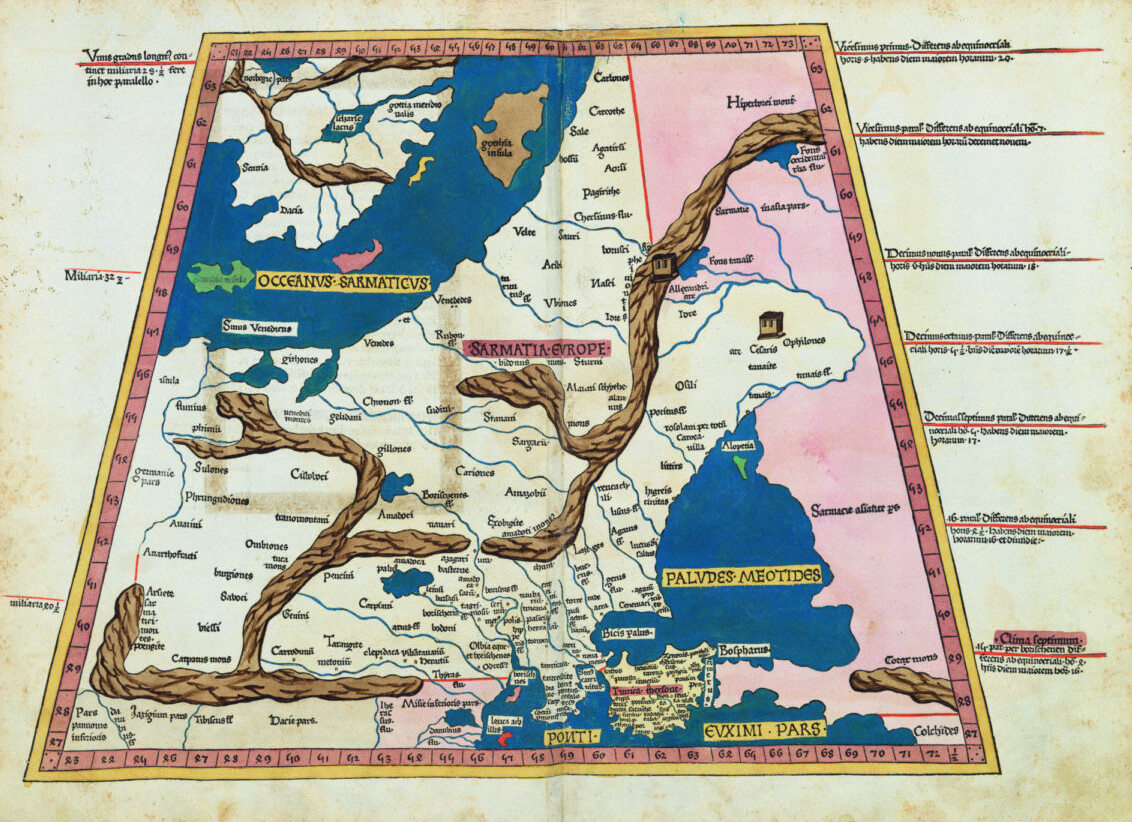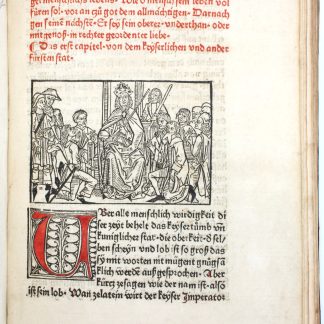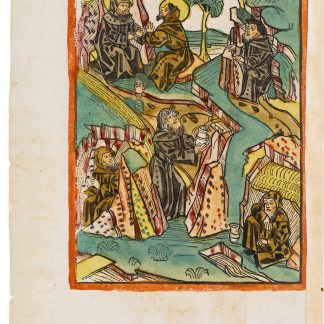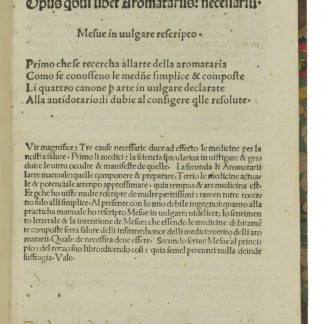[SOLD]
This item has sold. We are always interested in acquiring another copy or any item of comparable quality.
An excellent example of of one of the earliest obtainable maps of Russia, in the original 15th century colour
[Russia, Black Sea] Octava Europe tabula.
430 x 590 mm. Woodcut map, fine original hand colour, minor losses to higher and lower gutters skilfully repaired.
The first-ever printed woodcut map of Russia, here in original hand colour. The map was published in the first atlas printed outside Italy; it was the first atlas to be illustrated with woodcut maps.
In 1482 Lienhart Holle in Ulm published a revised edition of Ptolemy's Geographia with the reworking of the Ptolemaic corpus by the cartographer Nicolaus Germanus Donis. The atlas included five additional "modern" maps: Italy, Spain, France, Scandinavia, and the Holy Land. The atlas would be the first book printed by Lienhart Holle, however, it would appear that the venture proved ruinously expensive and his business would go bankrupt shortly after publication. The remaining sheets, the woodblocks and the types passed to Johann Reger in Ulm, who reissued the work in 1486.
As well as the modern maps the atlas bears some other notable first. It was the first time that maps were signed by the artist responsible for the woodcutting; in this case Johannes of Armsheim, who signed the world map, and incorporated a backwards N into the woodcut text on each map. It is also the first to print the accompanying text on the verso of the map to which it refers. Another important feature of the Ulm editions is the introduction of the publisher's colouring upon the maps. Maps from 1482 usually have a rich blue colour in the sea which was replaced with a soft brown colour in 1486.
T. Campbell, "Earliest Printed Maps", pp. 179-210. Schreiber 5032. R. A. Skelton, Bibliographical note prefixed to the facsimile of the 1482 Ulm Ptolemy.





